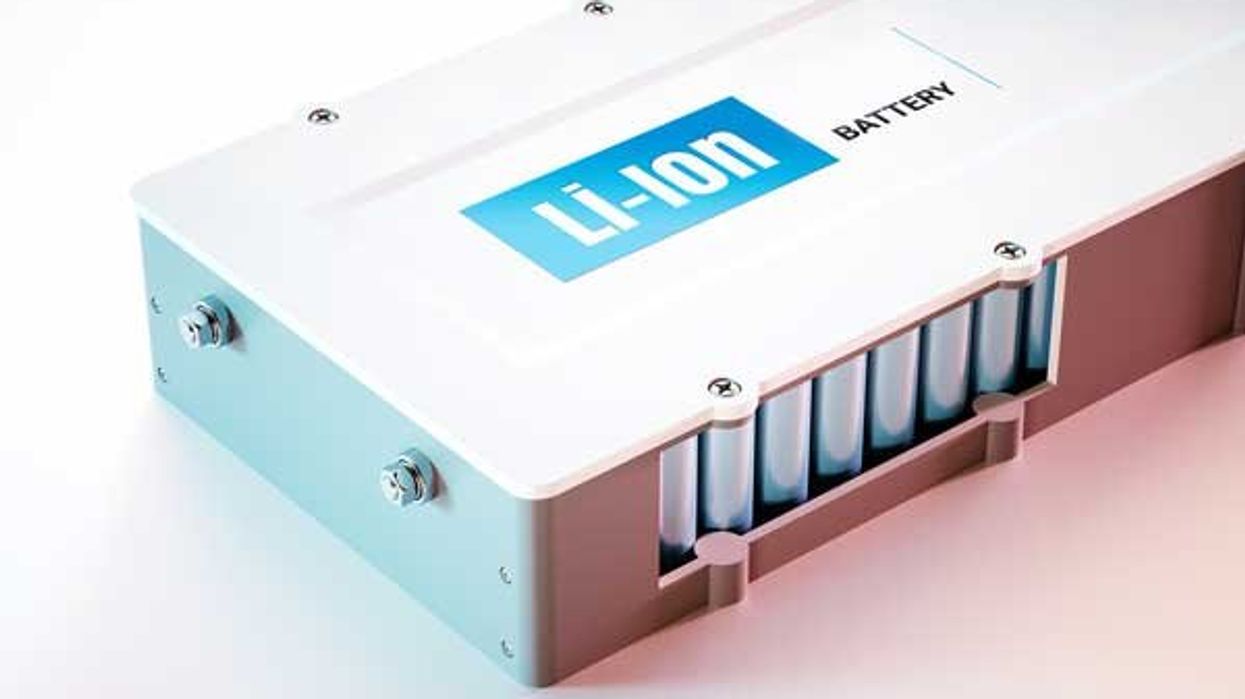SoCal Startup Narrows in on Batteries that Charge in Minutes
David Shultz reports on clean technology and electric vehicles, among other industries, for dot.LA. His writing has appeared in The Atlantic, Outside, Nautilus and many other publications.

This is the web version of dot.LA’s daily newsletter. Sign up to get the latest news on Southern California’s tech, startup and venture capital scene.
Battery Streak is one of the more interesting startups in the Southern California clean tech space. The company, like so many others, is trying to decrease the length of time it takes to charge a battery. Its technology, however, is somewhat unique.
Based on research born out of UCLA, the company is leveraging an exotic element known as niobium that can replace or supplement graphite in a lithium-ion battery anode. If you really want to nerd out, I explained more of the details of the chemistry when I covered the company last summer. But so far Battery Streak’s testing shows that their niobium-laden cells have much faster charging speeds, longer life, and cooler temperatures than traditional lithium-ion batteries.
Though such claims are a-dime-a-dozen in the battery industry, the Camarillo-based startup has a couple of things going for it that sets it apart from much of its competition. For starters, its batteries last for many thousands of cycles without significant degradation. In addition, the company is producing batteries at full-size and sending them out to potential buyers for validation. The tech is out of the lab, so to speak.
According to Dan Alpern, Battery Streak’s VP of Marketing, the company just signed its first contract with a large defense contracting company. Apern declined to give details about what the deal was worth or name the contractor but he views it as proof that there’s demand for their technology and that the company can generate revenue.
There are tons of other irons in the fire as well: Battery Streak’s niobium chemistry is being tested by various branches of the military and government, medical devices, consumer electronics companies, and EV manufacturers. Alpern says so far, the feedback has been excellent.
Back in August, when I toured Battery Streak’s facility, both Alpern and CEO David Grant were on the fence about whether or not they wanted to eventually become a battery manufacturer.. Since then, Alpern says, it's become apparent that the best path forward is to stay out of manufacturing at scale. Instead, Battery Streak’s business will focus on creating the niobium component of the batteries and licensing the technology to large-scale manufacturers.
With the path ahead in sharper focus, Battery Streak has also made advances in its engineering process. Alpern says the company has figured out how to assemble their niobium nanostructures at much lower pressures and temperatures, which has translated to a cost reduction of 66% since last summer. That kind of improvement means that instead of costing 5 to 10 times as much as a traditional lithium-ion battery, the niobium formulations would only cost twice as much. While that kind of price tag would be still brutal to endure for something like an EV, where the battery is often 40% of the total cost of the vehicle, it opens the door for a ton of other applications. A smartphone battery, for instance, only costs a few dollars. Imagine being able to charge your laptop from 0%-80% in 6 minutes.
There’s no doubt fast charging is the key to unlocking the potential of batteries. While there’s an enormous amount of competition in the sector, Battery Streak’s niobium-based approach sets it apart from most of the competition–and it seems to be working so far. Alpern is hoping to have more concrete details about some of Battery Streak’s business in the pipeline very soon. When those deals are public, dot.LA will have the details for you.
- Do Lithium-Ion Batteries Have a Fire Problem? ›
- Why EVs Are Catching Fire After Hurricane Ian ›
- A New Design Out of UCLA Aims to Revolutionize Batteries ›
David Shultz reports on clean technology and electric vehicles, among other industries, for dot.LA. His writing has appeared in The Atlantic, Outside, Nautilus and many other publications.





 Image Source: Tinder
Image Source: Tinder Image Source: Apple
Image Source: Apple